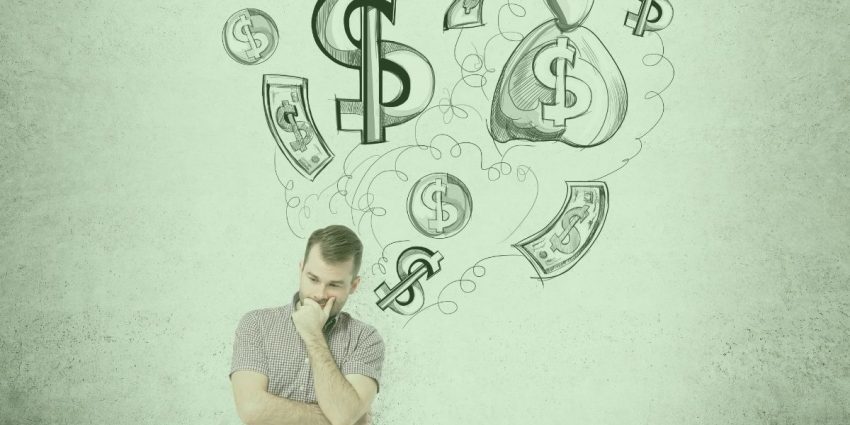Is money a made-up thing?
What is money, really? Where did it come from? Yes, bills and coins are real, and they have value. But only because people invented it! So, how did our current financial system come to be? And what can the history of money teach us about making it work better for us?
Hear Jacob’s reasons for money being a made-up thing
Let’s make made-up money work for us
Jacob Goldstein is an NPR correspondent and the cohost of the #1 money podcast, Planet Money. Prior to NPR, he served as a staff writer for the Wall Street Journal, the Bozeman Daily Chronicle and the Miami Herald. Jacob is also the author of the new release, Money: The True Story of a Made-Up Thing. On this episode of Queer Money®, Jacob joins us to explain why money is a made-up thing, offering insight into why finance isn’t the zero-sum game most of us think. He introduces us to the origins of modern capitalism, exploring some of the practical things we can do to address income inequality and make the system work for more of us. Listen in for Jacob’s take on what the future of money might look like and learn how an understanding of money history can change the way it impacts YOUR life! 
[click_to_tweet tweet=”“We think of money as being this very concrete, maybe kind of intimidating thing. It feels like this kind of force of nature. But truly, money does not exist in nature. It is a thing that people got together and made up.” – Jacob Goldstein” quote=”“We think of money as being this very concrete, maybe kind of intimidating thing. It feels like this kind of force of nature. But truly, money does not exist in nature. It is a thing that people got together and made up.” – Jacob Goldstein” theme=”style3″]
Topics covered on money a made-up thing
Why Jacob sees money as a made-up thing
- Money doesn’t exist in nature
- People continue to reimagine and reinvent
The origins of modern capitalism
- Economist John Law planted seeds in the early 1700s
- Foundation of financial, the economic world we live in
Why money isn’t a zero-sum game
- Productivity gains = produce more in the same time
- More to go around than in past
Why so many believe that money is a zero-sum game
- Gold standard mentality (finite amount available)
- Productivity gains largely go to very rich
Jacob’s insight on the changing rules of money
- Inflation, interest rates and unemployment low
- US government running large debt at the same time
The difference between government and private debt
- The US can print money, other countries want to lend
- Households limited (can’t print own money)
The concept of a mixed economy
- Capitalist system but with a safety net
- Things like school, healthcare and childcare free
How societies function without using money
- Strict rules around reciprocity built over time
- Only works in small societies
How we might leverage greed to do money better
- Channel selfishness for socially useful ends
- Allow for greed as long as not harmful
What we can do to address income inequality
- Raise taxes on capital gains
- Expand earned income tax credit
- Make it easier to get healthcare without a job
- Increase wages for low-income workers
- Federal Reserve keeps interest rates low
How technology affects the economic system
- Concerns about losing jobs to machines
- Get better at helping people in transition
Working to change capitalism vs. creating a new system
- The growing gap between rich and poor since the ’60s
- The way money works changes over time
 Jacob’s predictions around the future of money
Jacob’s predictions around the future of money
- Crypto won’t be widely used anytime soon
- Big changes coming
Connect with Jacob
Resources for your finances
- Money: The True Story of a Made-Up Thing by Jacob Goldstein
- Sapiens: A Brief History of Humankind by Yuval Noah Harari
- Credit Card Pay Off Plan
- The Debt Lasso Method
- Debt Free Guys on Facebook
- Debt Free Guys on Twitter
- Queer Money Facebook Group
- Queer Money on Instagram
- Subscribe on iTunes
- Email [email protected]

